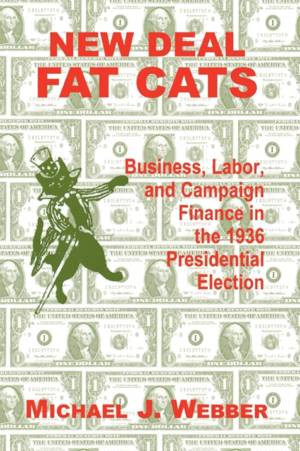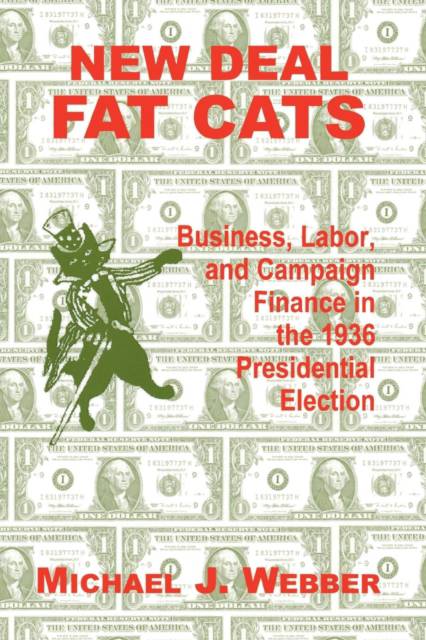
- Afhalen na 1 uur in een winkel met voorraad
- Gratis thuislevering in België vanaf € 30
- Ruim aanbod met 7 miljoen producten
- Afhalen na 1 uur in een winkel met voorraad
- Gratis thuislevering in België vanaf € 30
- Ruim aanbod met 7 miljoen producten
Zoeken
New Deal Fat Cats
Business, Labor, and Campaign Finance in the 1936 Presidential Election
Michael Webber
Paperback | Engels
€ 56,45
+ 112 punten
Uitvoering
Omschrijving
In New Deal Fat Cats, Michael Webber offers a fresh perspective on the New Deal. The author analyzes the role of various segments of society in party politics during the political change brought on by the Great Depression. Webber uses analysis of campaign contribution as a major method of evaluating the 1936 presidential election. Today's readers may be surprised at the statistical breakdown of the group that reelected FDR. These groups ranged from southern Democrats and organized labor, to Catholics, Jews, and small businesses. A considerable portion of the author's analysis rests on interpretive literature about the politics of the New Deal and specifically about the role of business in the construction of those politics. The emphasis of this work is on the coalition of what seem to be disparate elements in society suggesting that large and monolithic power blocks are not necessarily the road to major political change in U.S. society. The reader will begin to sense the seemingly divisive pressures from different groups that made the New Deal not only a paradox, but an effective social reality.
Specificaties
Betrokkenen
- Auteur(s):
- Uitgeverij:
Inhoud
- Aantal bladzijden:
- 180
- Taal:
- Engels
Eigenschappen
- Productcode (EAN):
- 9780823219476
- Verschijningsdatum:
- 1/01/2000
- Uitvoering:
- Paperback
- Formaat:
- Trade paperback (VS)
- Afmetingen:
- 152 mm x 229 mm
- Gewicht:
- 272 g

Alleen bij Standaard Boekhandel
+ 112 punten op je klantenkaart van Standaard Boekhandel
Beoordelingen
We publiceren alleen reviews die voldoen aan de voorwaarden voor reviews. Bekijk onze voorwaarden voor reviews.








